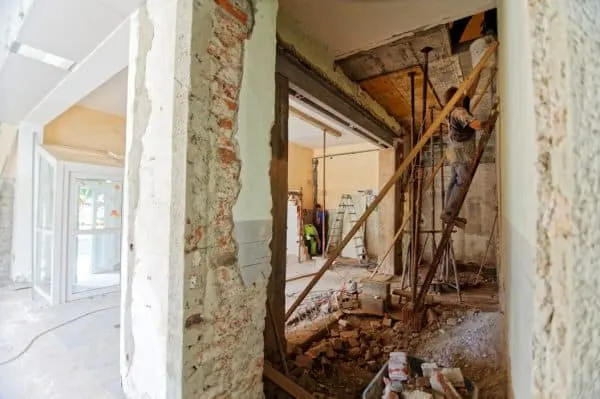
If you’re considering renovating your home, you know there’s a lot to think about. The planning and budgeting phase alone can take a lot of time, especially if this is your first experience with a major home renovation project.
Although you may be itching to get started, it’s important to take time to consider the ways renovating your home could impact you. There are many legal requirements for home renovations that may vary depending on where you live. A thorough planning phase creates a strong foundation for your actual project.
However, even with a lot of thought, it can be challenging to anticipate your needs before you actually start the project. Here are three things you should know about your next renovation before you start knocking down walls.
1. Consider Neighborhood ROI
Many homeowners justify renovations by looking at the project’s return on investment, or ROI. The ROI of a specific project refers to how much value an update can add to a home. For example, in 2021, a new garage door had an ROI of 93.8%. That means that homeowners could expect to get about 93.8% of their investment in a garage door back if they sold their home.
Most ROIs don’t come anywhere near 100%. Although land gains value over time, homes generally depreciate, or lose value, every year. Fluctuations in the housing market can increase the value of your home, but those fluctuations can vary and they’re totally out of your control.
Paying attention to ROI will help you save the most money on your home improvement projects over time, especially if you choose to sell. However, in addition to ROI, home value can also be affected by your neighborhood. For example, if the home next to yours is run-down, your home’s value will be negatively impacted.
Home Owner Associations, or HOAs, are another neighborhood factor to consider. Most HOAs are put in place to protect property value and ensure your neighborhood doesn’t look run-down. Because they’re concerned with appearances, you may have to get permission from your HOA before making any exterior changes to your home.
2. Investigate Your Insurance
Renovating your home may increase its property value. This is great for you if you’re planning to sell soon and want to make a profit. However, you may want to be cautious with major renovations if you’re planning to stay in your home for a long time. Sometimes, renovations that improve your home can lead to an increased cost of living down the road.
For example, if your home is worth more after renovations, your insurance policy could become more expensive. Home insurance typically covers the cost of rebuilding your home, and renovations could increase that cost. Some renovations, like building a deck or a pool, could also increase your risk of liability, which could raise your insurance costs.
However, it’s also possible for renovations to reduce the cost of your home insurance. For example, replacing your roof means your home is more protected than before. Some insurance companies give discounts for renovations like this that make using your policy less likely.
If your home really needs to be remodeled, it may be worth paying more for insurance to improve your living space. Whatever you decide, it’s important that you know how much renovations may cost you in insurance bills before you get started.
3. Research Building Permits
Although not all home renovations require a permit, many of them do. Typically, if updates will change the structure of your home or increase its real estate value, you’ll need to get a permit before you begin to change anything.
Building permits are time-sensitive, which means they’re only valid for so long. To save costs on your renovation, you should coordinate with your contractors and decide on a construction timeline before you pay for a permit. After you purchase a permit, you’ll have a set amount of time to get started and a set amount of time to complete your renovations.
Permit costs vary widely depending on the project you’re pursuing. For example, the permit for building a new house might cost a large fee of $2000. By contrast, most small project permits cost between $100–$400. Permit costs may also depend on your location.
You may be frustrated at having to pay for a building permit in addition to contractor and material costs. However, it’s important to follow the law and get the permits required for each project. If you’re caught working without a permit, you may have to pay a large fine or do work over again so it can be inspected.
It’s a Ripple Effect
Every choice you make with your home will affect your neighbors, your property value, and potentially your cost of living. During your planning phase, it’s essential that you consider the ripple effects that could come from updating your home.
Although planning a home renovation can feel overwhelming, success is really just a matter of preparation and research. Follow these steps to ensure you’re following the law and you’ve considered any long-term costs that could come from updates.
When done thoughtfully, home renovations can increase your property value, reduce your insurance costs, and ensure that your home is updated legally and safely for future homeowners.
- Sagittarius Man & Gemini Woman Love and Sex Compatibility - January 31, 2024
- Taurus Ascendant Rising Personality Traits in Men (Guide) - January 31, 2024
- How to Seduce and Attract a Sagittarius Man (Seduction Tips) - January 31, 2024
